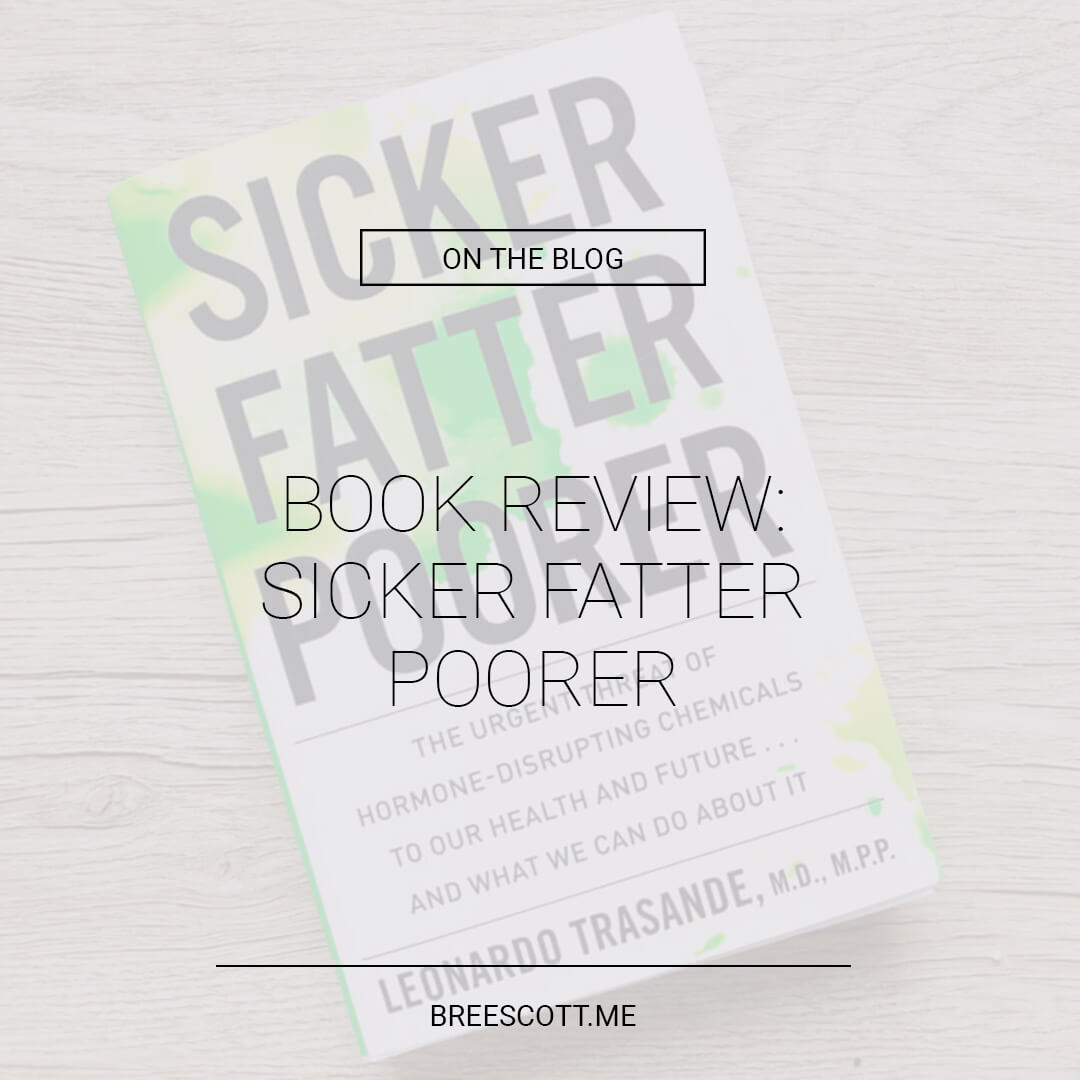
Guys, I couldn’t put this book down. And, definitely not for the reasons you think. It wasn’t the page turner that Educated (more on that book soon) was in terms of the story, but rather I got so obsessed with the scientific data and how we react and don’t react to it, what changes and what is ignored, that I just had to keep reading.
I’ve been mentioning this book to so many people as I just find it so so interesting and enlightening, and I’ve found the reactions of people are what I find really funny/entertaining. Things like: “I’m sure people like you love it” or “It’s great that there are so many tips for people like you who want to live healthier can look into.” I guess, I was surprised to find that more people weren’t a bit enraged when they learn that the US government basically does nothing to protect our health as far as environmental chemicals go, that it’s all controlled by the businesses who make that chemicals. That alone enrages me, but in talking about this book, it seems that doesn’t provoke the universal rage I thought it would.
Which is OK because not everyone has to be enraged by this, just the vocal, “people like me” who want to see a change for ourselves as well as for our children and grandchildren (both of who are currently being affected by the chemicals present in our environment today.
I am a nerd and read many books with a pencil now so I can underline parts that I want to remember (mostly for me to go back and read to Nic at a later point). I think these points (along with my commentary) will help you understand why I think this book is such an important book, and that everyone should read it to understand the science and economics behind how we’ve gotten to where we are, and what we can do to turn our environment around.
To summarize the book, the environmental chemicals we are exposed to can manifest in different ways to different people.
“…the disruptive, multifocal force that synthetic chemicals can apply with different consequences in each individual.”
4 of the biggest things we’re seeing, based on the different chemicals we’re exposed to in the environment are:
So, if we’re seeing all of these things, why can’t we just ban the chemicals? Simply put because we can’t get definitive data on the exact causes. Scientists can’t run experiments exposing humans to high dosages of chemicals they think cause harm. Plus,
“…human studies can take decades to conduct properly simply because the disease in question doesn’t manifest clinically until 40, 50, or even 60 years following exposures.”
What we can do is look for initial warning signs, and make changes based on those. But, that’s what they are, warning signs, and so many companies are going to fight you on banning a chemical that they want to use and has no PROVEN issue. Take BPA as one example.
“BPA is another chemical for which we may be suffering the consequences of failing to act when science sent early warning signals.”
Today, baby bottles and cans and other things have moved away from using BPA, but use alternatives, which are also showing warning signs, that they might not be much healthier, but more studies need to be done.
Dr. Trasande goes on to explain that for all the research we’ve done and cure’s we come up with to treat diseases there is also
“…a failure of the medical profession to prevent diseases, as much as we have developed terrific techniques to treat many of them.”
We need to take into account:
“The costs of these diseases are very high. Shouldn’t we be looking at ways to mitigate them? If avoiding chemical contamination increases health and lowers unnecessary medical expenses, isn’t that a win-win?”
“Policies change exposures, exposures contribute to disease, and diseases are costly to our economy.”
“…the costs of environmental protections always seem high and even inflated when they are first proposed. As demand rises enough to develop processes that would bring the testing onto a larger and cheaper scale, prices will drop.”
“Consumers win when disruptive innovations for all sorts of products reset the competitive landscape for product characteristics, price, and other factors.”
So, what I believe he’s saying here is we need to really take a step back and think about what the CAUSE is of diseases and work on PREVENTION rather than being reactionary and working on FIXES. The good news here is that we don’t need to fully wait for the science, or the government or the medical community. We can make changes everyday that reduce our exposures, we can support businesses that are already “speaking out” and we can introduce change. We can be disruptive and we can reset the landscape.
“We can do a lot to protect everyone from “lifestyle” diseases that are caused by things other than lifestyle.”
“You have more power to manage your environment than you think.”
“You are the consumer, and you have the power to drive manufacturing with your wallet.”
“We need to use our economic power to change the system for all of us to benefit.”
Take a look at the products you purchase everyday and make a change. Here are some simple things you can do that will help reduce your exposure to the environmental toxins that are all around us:
Together, we can make a difference. Please, join me in any way you can. Every little change you make sends a message. Together, we can make this world a healthier place to live.
“Get the word out that these chemicals are real and they are dangerous to us and our children. Work with homeowners’ associations. Work with schools. The moms at the local level can be a powerful force if they know what we know.”
